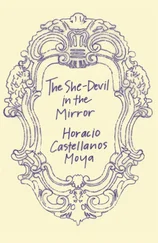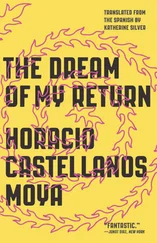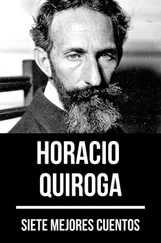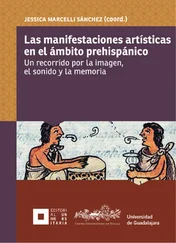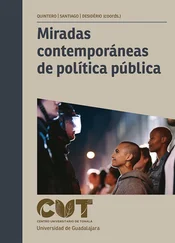“A little hop. ” he noted with a frown and a lifting of his eyebrows.
“That’s right. And if you come back down to earth the way you normally do, that means you’re awake, and if you don’t, if instead you keep floating, it means you’re dreaming, because there is no law of gravity in dreams.
“Have you tried it?”
I told him I hadn’t. And I laughed.
“I can just see me on my way home, taking little jumps every five minutes. Worse than Vroom. ”
Vroom was the madman of La Rábida, the district where Old Man Pericles lived. He ran around the streets barefoot pretending to be a car, he’d stop at the traffic lights, imitate the sound of a car engine, honk, hold up traffic and even sometimes overtake an absentminded driver, while other drivers either waved or insulted him.
I suggested we take a walk in the park through the dense forest, so the stifling heat wouldn’t do us in.
Old Man Pericles had an aversion to the occult. I could understand why: the general who fancied himself a warlock read books about the occult sciences and professed ludicrous notions to justify his brutal acts, as when he would say that it is worse to kill an ant than a man because the man will be reincarnated whereas the ant will not. On several occasions I tried to explain to the old man that the occult had nothing whatsoever to do with the sick mind of a criminal, any ignoramus can convert knowledge into grotesque superstition, that the depth of the mystery is inaccessible to a man corrupted by power. But Old Man Pericles had been marked by that experience, and his mistrust of any metaphysics was equal only to his sarcasm whenever — in private — he mentioned Marxist dogma.
I clearly remember Haydée’s wake, during those early morning hours when the visitors had all left and the only ones left were a few family members and the closest friends, Old Man Pericles asked me what I thought about the idea of the eternal return. I told him I preferred to call it recurrence, and said I didn’t forswear the possibility that things could happen again in precisely that way — that time was circular and the moment of our death coincided with that of our birth, and we would have to live the same life over and over again. Old Man Pericles remained pensive for a while then said that such a possibility seemed macabre to him, that if such a recurrence was an invention of a “superior intelligence” — as I liked to call the will from the invisible — it was not, in fact, a superior intelligence but rather a perverse, sadistic one. And he gave the example of a man who’d suffered the worst possible torture and death, who would be born over and over again only to die in the same brutal fashion.
“It hasn’t got heads or tails, not heads or tails,” the old man repeated, aggrieved, because at that moment his atheism was weakening, and he could find nothing to replace it.
I didn’t tell him that I was wont to pray to my invisible ones, asking them to leave me forever in the void.
The Viking was sitting in the shade of a pink poui tree, leaning against the trunk, dozing off. He was the sleuth assigned to keep watch over the old man; apparently he was supposed to never lose sight of him and to keep a record of all his movements. He was a bitter old cop, but he had a certain way with people; in his youth he had been a professional wrestler — hence his nickname, “The Viking,” for at the time his hair, now gray, was blond. At first, Old Man Pericles treated him with disdain: he ignored him and at the slightest opportunity gave him the slip; then he took pity on him, and if he found him hanging around the house when he went out in the morning, he’d tell him not to waste his time, they were both too old for this game of cat and mouse, then he’d tell him his plans for the day so he wouldn’t have to follow him and could still present his report to his bosses. The Viking did his part, too: the last time they were expediting the order to expel him from the country, he let the old man know, which gave him several hours to get ready before they arrested him and drove him to the airport. And whenever they exchanged even a few words, The Viking always, and with great respect, called him “Don Pericles.”
I would have liked to paint The Viking as a fallen angel, the old worn-out bloodhound assigned a quarry who is even older and more infirm than he. But I never found the path that revealed him to me: an old man sitting in the shade of a tree doesn’t say anything; putting him in a policeman’s uniform would have been forced and unnatural. Maybe I should have painted him precisely like that: a bloodhound with weary wings.
Old Man Pericles and I had both married women who were one tier above us, socially and economically speaking. Needless to say, things were different at the beginning of the century: the prejudices and alienation arose later with the advent of the middle class and the nouveau riche. Back then, there were the wealthy few on the one hand and the people — the masses — on the other. None of us had any pretentions or ambitions; ours was simply the preordained encounter of persons of the same class and social standing. That’s why Old Man Pericles made so much fun of his son Alberto, and was so disparaging of his longing to cut a figure in society, a desire that ruled his life ever since he was young; he always wanted to be a dandy, parade around the clubs, dress in the latest fashion, drive fancy cars to impress the girls. “That one was born in the wrong place: a pearl among swine,” the old man would say. And that’s what he’d call him, “The Pearl,” when he wanted to scoff at his adventures. I always thought Alberto exhibited behavior typical of the youngest son, the spoiled one, the one who believes the world is made for him; but Old Man Pericles explained to me that he spent too much time with his maternal grandmother when he was little, hence his mother-in-law was to blame for his son’s frivolousness. “Even when he dabbles in politics he acts like a playboy on a safari,” the old man said, laughing, derisive; at moments Old Man Pericles even accepted Alberto’s frivolity, but he never forgave what he once in a broadside called Clemente’s “betrayal.” At the time I sensed that he was not referring to Clemente’s friendships with the same military commanders who ordered the old man’s arrests and expulsions but rather a specific, crushing, painful, and unmentionable act they would both carry with them to their graves, as I would in the case of Maggi.
“What would you do, Chelón?” he asked me.
We were walking down the road toward the path that led into the grove of Guanacaste trees, where those tall broad-leaved evergreens shade out the sun and the air is cool, damp, and comforting. I was wearing my cap and carrying my cane.
“I don’t know,” I answered.
Although the rains had not yet begun, and the mountain was dry, the color of straw, inside the forest the greens of the vines and the bushes emerged seductively.
“Well, you should know, because your turn will come,” he said with touch of a grimace.
“Maybe it’s better when it arrives all at once, no warning,” I noted.
I had an intuition, a fleeting idea, but I shooed it away, like one shoos away a fly.
“What I would do, Old Man, is settle any outstanding accounts; let go of any resentments, hatreds, lay my burdens down, for where we’re going it’s all just excess baggage anyway,” I said.
“And if we’re not going anywhere. ”
“Still, the lighter, the better.”
“I have a fever,” the old man said, suddenly stopping.
“You want to return?”
“No, let’s do our usual route.”
He seemed exhausted, and he had always been the one to set the steady, almost martial, pace, never showing the least consideration for my fear of falling.
Читать дальше



